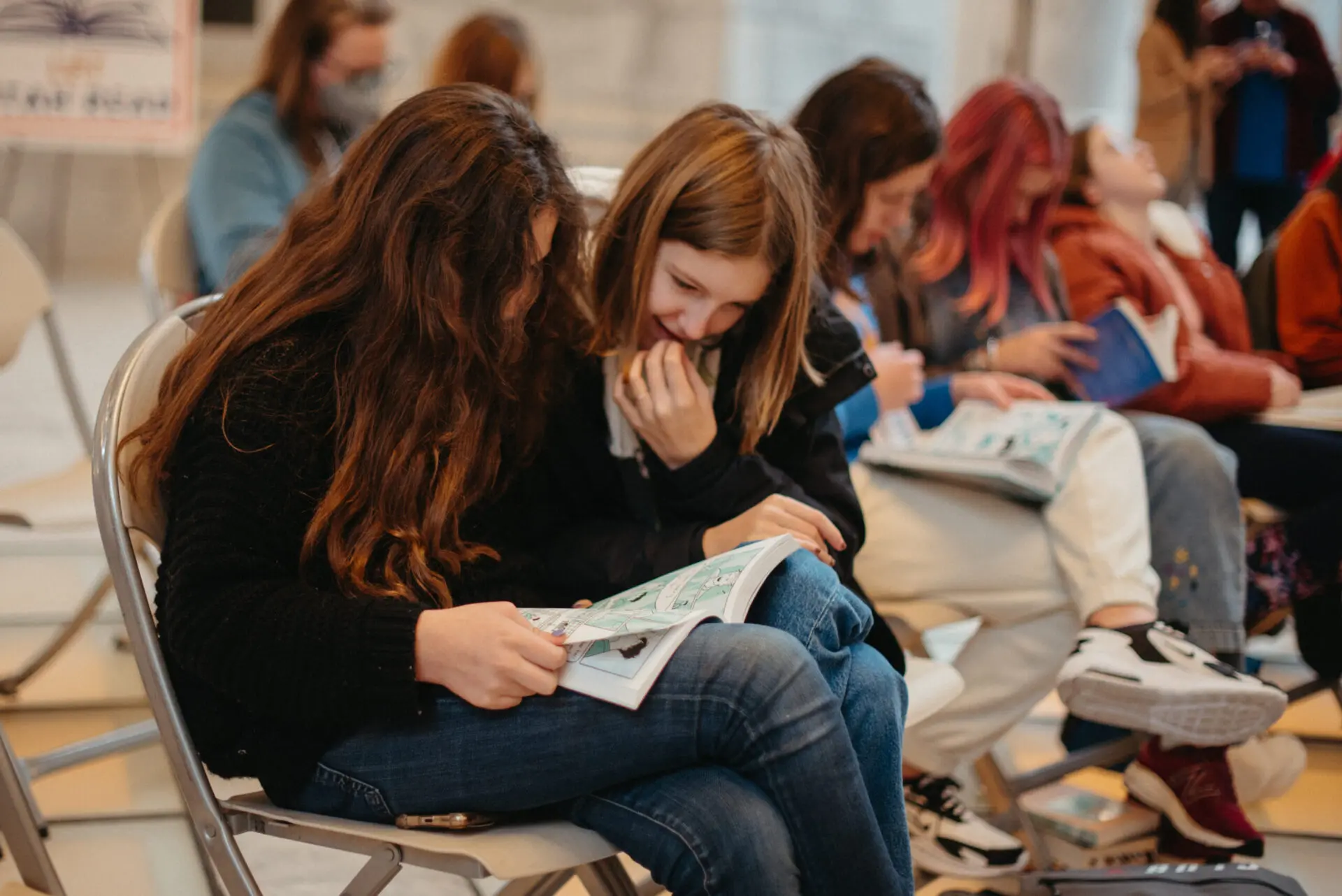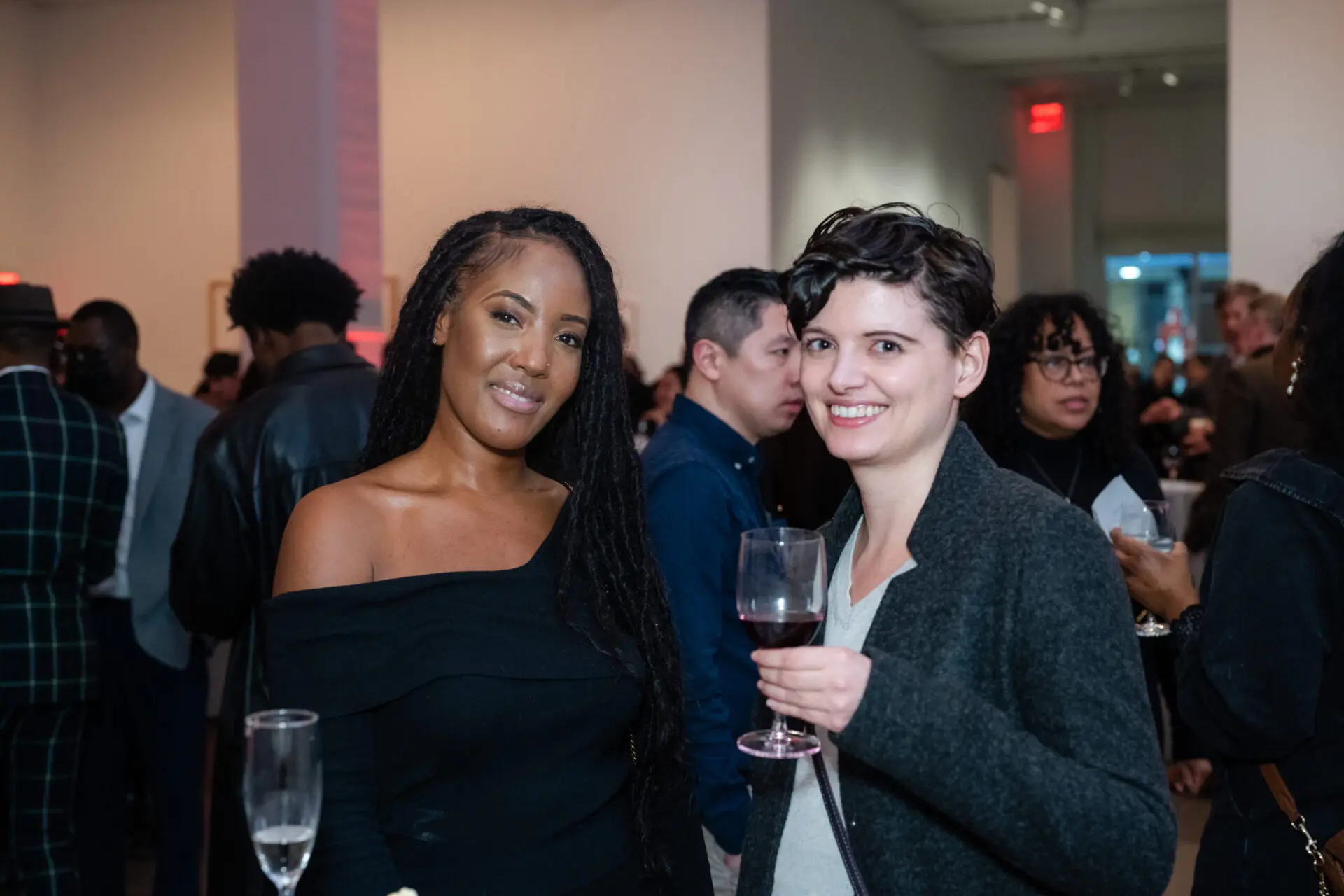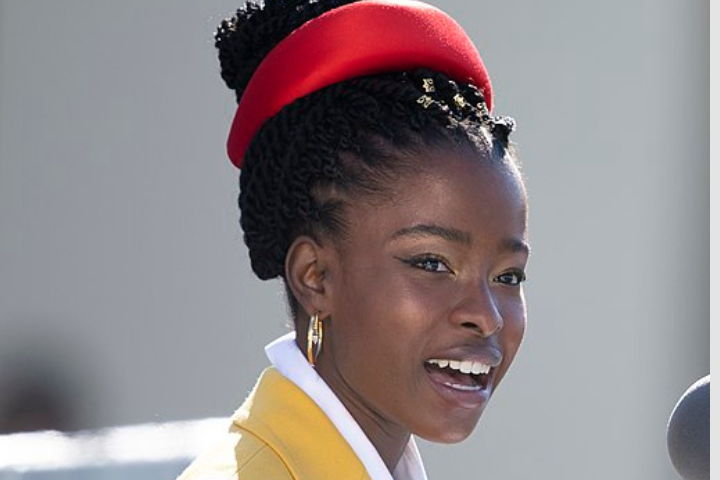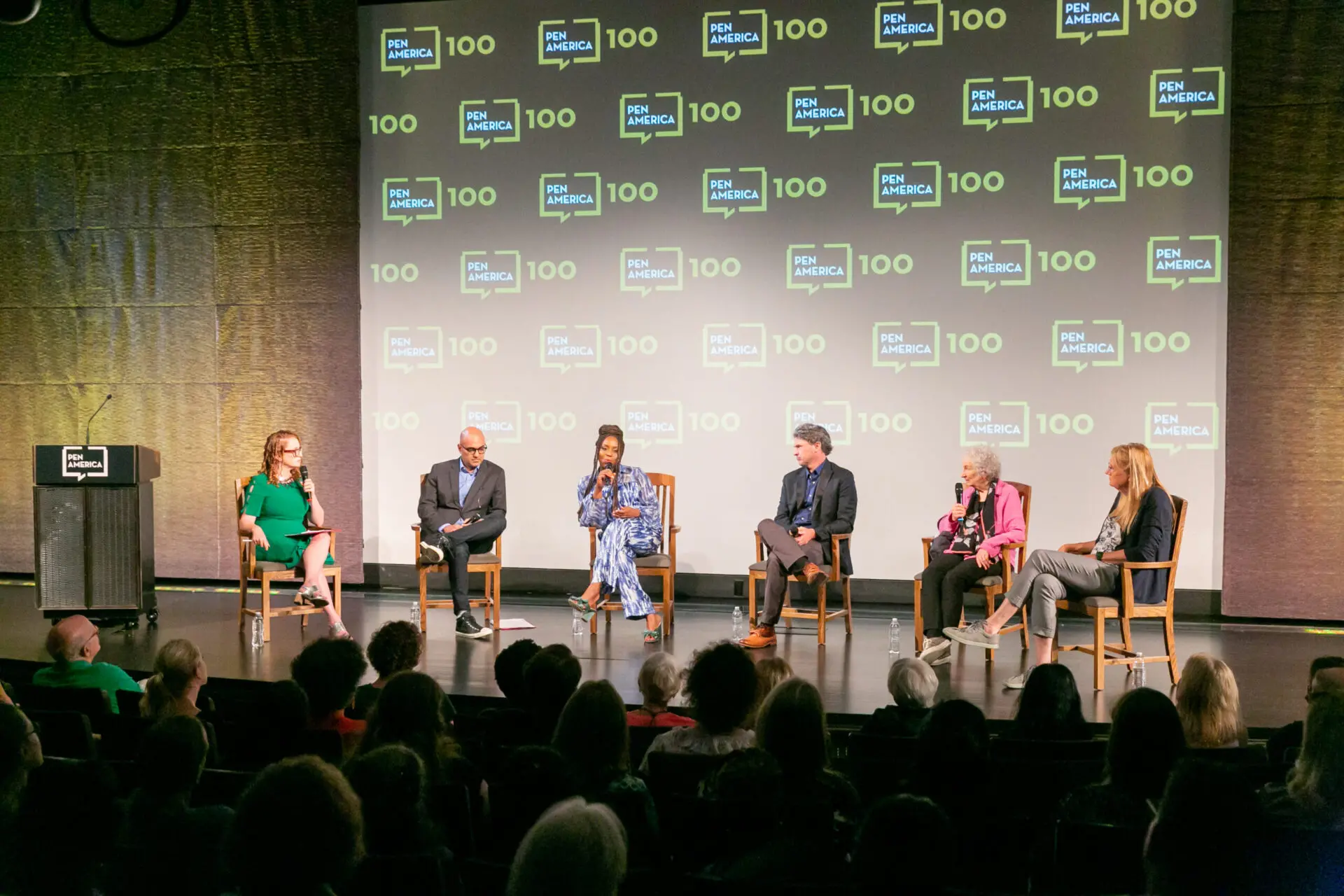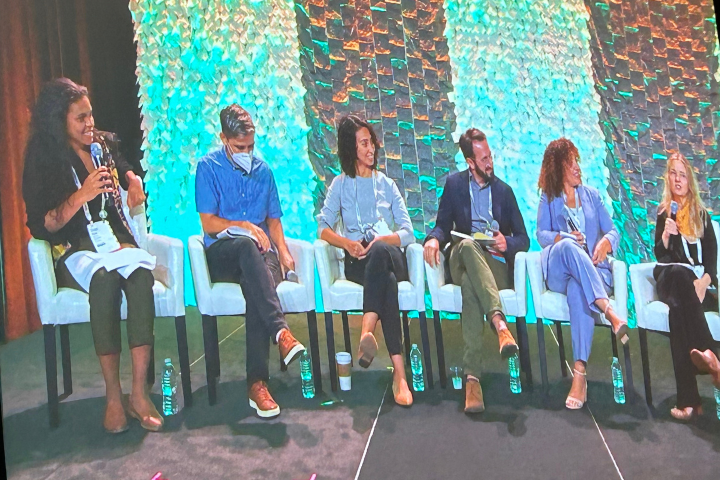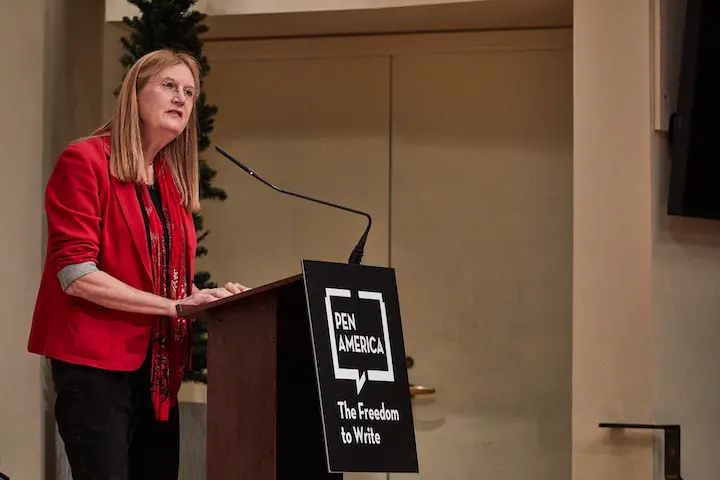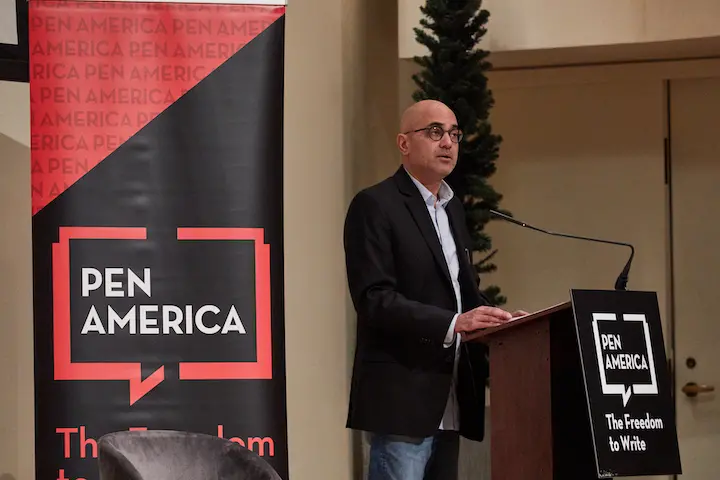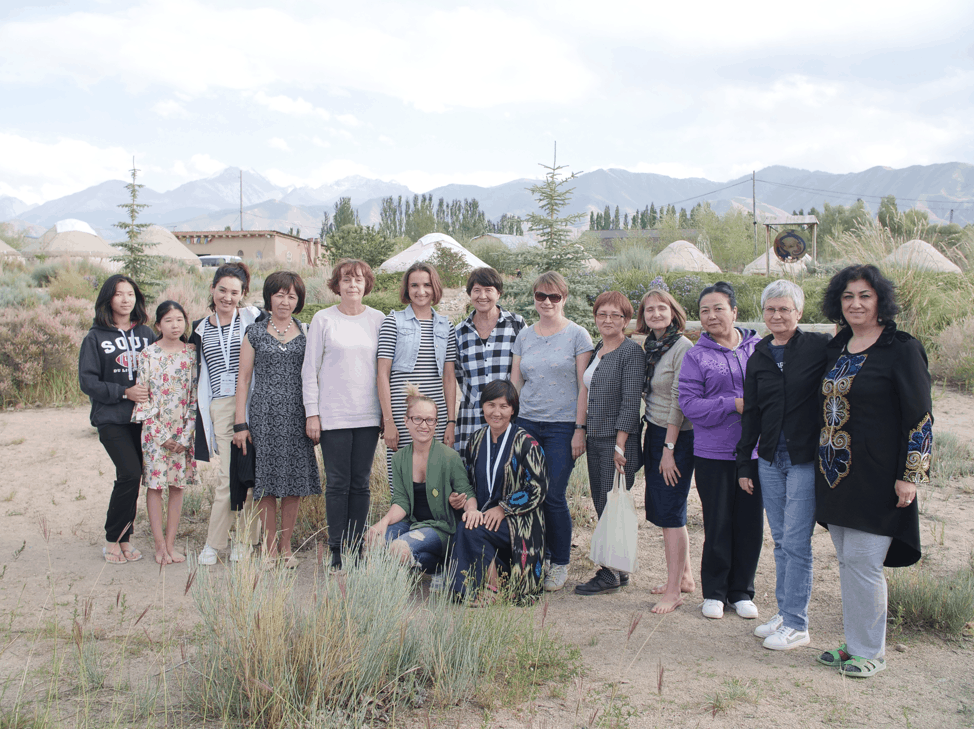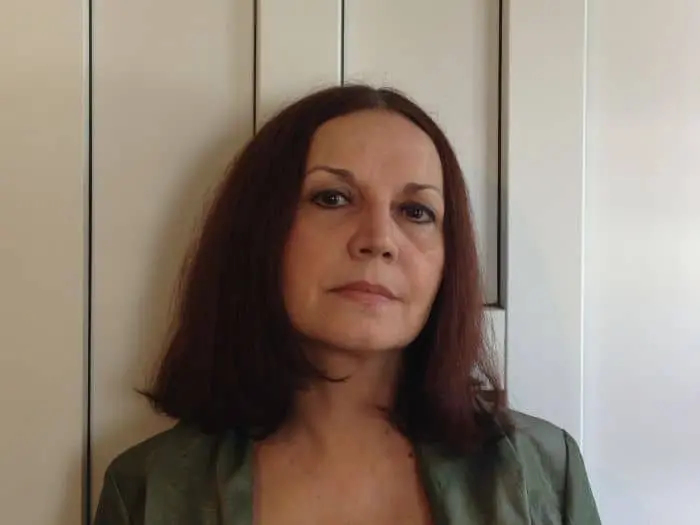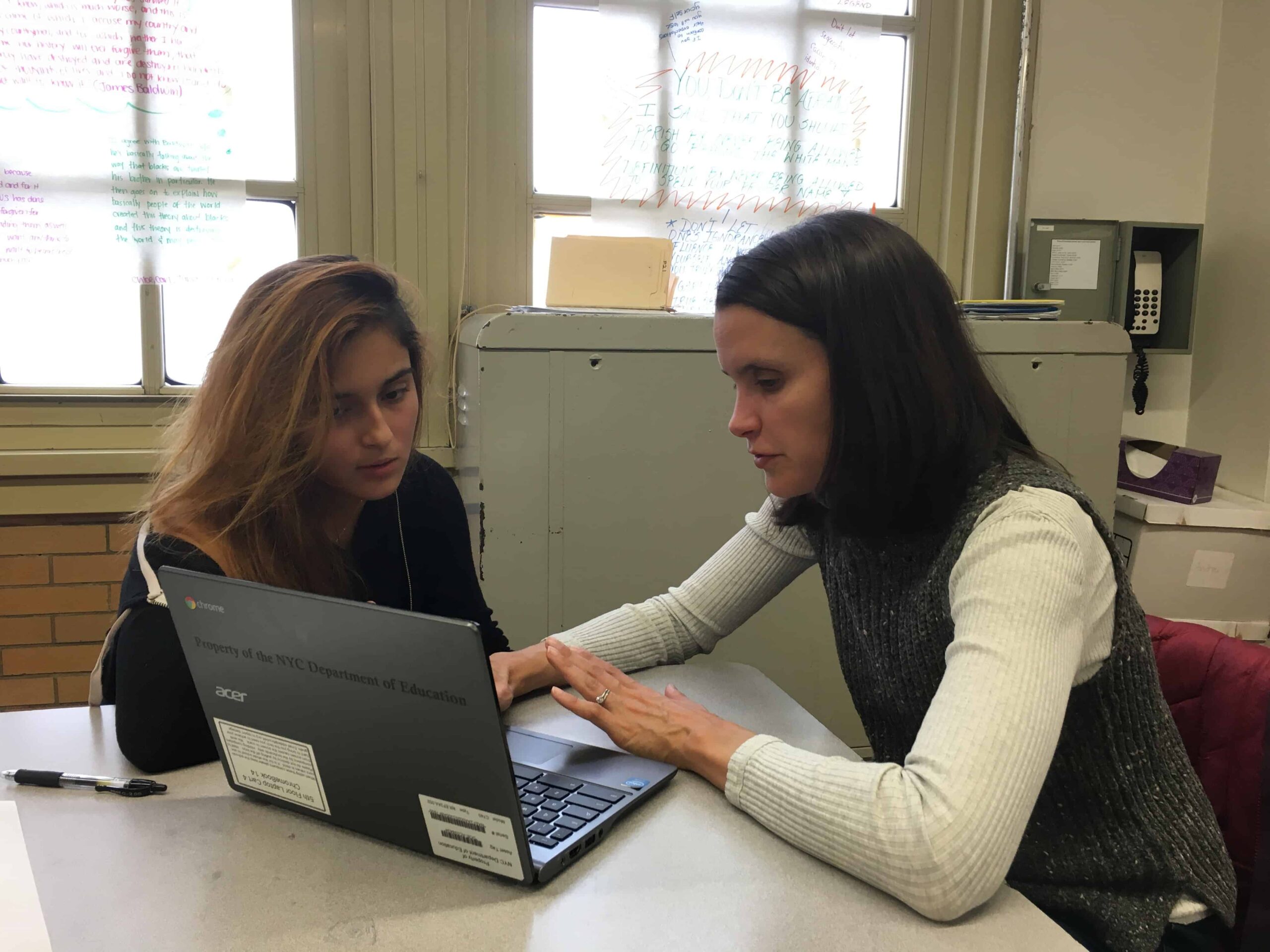
By Lisa Tolin
Kabeer Bhuiyan came to Brooklyn from Bangladesh during what can be a difficult time for anyone: middle school.
He understood English, but didn’t speak fluently. Everything was new, and everyone was different. He was scared. Kids were unkind. For the most part, Kabeer stopped talking.
A few years later, he’s not only fluent in English, but also planning to attend Hunter College after writing a moving essay for his college application with the help of a volunteer from PEN America’s Writers in the Schools committee.
As Kabeer tells the story in his essay, he was on his bed in his Brooklyn apartment one day, staring at the ceiling, when he remembered a fishing trip with his grandfather back in Bangladesh. Kabeer had asked why leaves were falling from the trees, and his grandfather told him it was so new leaves could grow. Kabeer understood it as a metaphor for his changing life.
“So from that moment, I realized, I have to try to embrace myself in a new way into the new environment,” he said. “And I just tried to be me, rather than trying to be someone else.”
That life-changing story is exactly the kind of moment author Nell Freudenberger loves to help students find when she helps them write an essay for their college application. For the last six years, Freudenberger has volunteered through the Writers in the Schools committee at Brooklyn Collaborative Studies high school, working with seniors like Kabeer on class papers and college admission essays.
Freudenberger, author of the novels Lost and Wanted, The Newlyweds, and the upcoming The Limits, is one of about 20 writers who volunteer to work in under-resourced schools through the committee, chaired by author/journalist James Traub.
In addition to helping during the school year, the program, which is entering its tenth year, holds a summer writers workshop that offers students the chance to work with professional journalists, novelists, and essayists.
Daisy White attended the workshop last summer, and enjoyed writing prompts and activities like walking through Washington Square Park to overhear dialog.
“I think that it really opened my idea of what writing is,” she said. In school, she mostly wrote essays. “So writing for myself was very new and very interesting. I think it was a lot of fun to take time, and discover what I liked versus what school was teaching me.”
For kids on their way to college, the stakes for writing a strong essay are high. Freudenberger says every student has a story from their life to tell, and it usually only takes a few minutes to find. She mentions Cici Joseph as an example.
Cici’s mother had her as a teen, and the family expected something similar from Cici. Instead, her mother went back to school to become a nurse, and Cici plans to do the same. At her aunt’s wedding, Cici dazzled the family with her violin.
“How do we focus on these moments like Cici playing the violin at her aunt’s wedding and wowing her huge extended family?” Freudenberger said. “Once we find that moment, it’s not hard. It’s so exciting to watch these stories unfold. I feel like it sounds cheesy or hokey when you talk about it, but I, I am thrilled when, when they come into the room, and they’re not sure. And then you get the kind of germ of the essay in the first paragraph. And then you want to just spool out from there.”
Join Writers in the Schools
Gabriel Liang wrote about the stories his father would tell him about his life, and about the family back in China. His mother reminded him that his story would be different from their experience as immigrants. And so Gabriel wrote about finding his own story – joining the robotics club, working up the courage to play piano at a school assembly – and how he learned to tell his story to his father.
During the pandemic, Freudenberger got a glimpse into the struggles of some of the students – watching them care for small children while they studied, or run from remote school to jobs. She remembers helping one teen write her essay on Zoom while she bathed her nephew.
“As a teenager to be trying to finish your senior year and have that kind of responsibility – it was really, that was sort of overwhelming to see,” she said. “So I’m glad to see everybody back in person. And it’s delightful to be back here myself.”
BCS teacher Andrew Boorstyn is happy to have her, both to help kids who are struggling, and to enrich the writing of those who are not.
“One thing that’s challenging about teaching,” he said, “is that when you’re teaching to a whole class, you want to help the most students, but then some students get left behind who are really struggling, and others are ready to move on to the next step. So what’s amazing about working with PEN volunteers is that they do both of those things incredibly well.”
Boorstyn said many of the school’s students are first generation college-goers, and don’t have the supports that other students might. He has watched them flourish with the help of volunteer writers, who take what can seem like an ordinary moment and find the meaning in it.
“I think a lot of experiences that our students have, maybe they don’t see what’s worthy about it until they talk to someone who points out that there is a lot of meaning in it,” he said. “On the other hand, we have some students who have unbelievable stories, experiences that I couldn’t even imagine going through at their age. Sometimes it takes someone that they trust and built a relationship with to start telling those stories.”
The students say Freudenberger helped them form their ideas, and as the first writer they’d met, she opened their minds to possibilities in creative fields. Freudenberger said she learned from them, too.
“I’ve learned so much as a person,” she said. “And I think, as a writer, what it does for me is remind me of the primacy of the story. … I think when I come to BCS, I’m reminded that unless you’re starting with a story that has to be told, there’s no point in starting. So I think it kind of keeps me honest, in terms of my own writing.”
Find out more and volunteer with PEN America’s Writers in the Schools Committee
Lisa Tolin is Editorial Director of PEN America. Her debut picture book is How to Be a Rock Star (Putnam, 2022).

